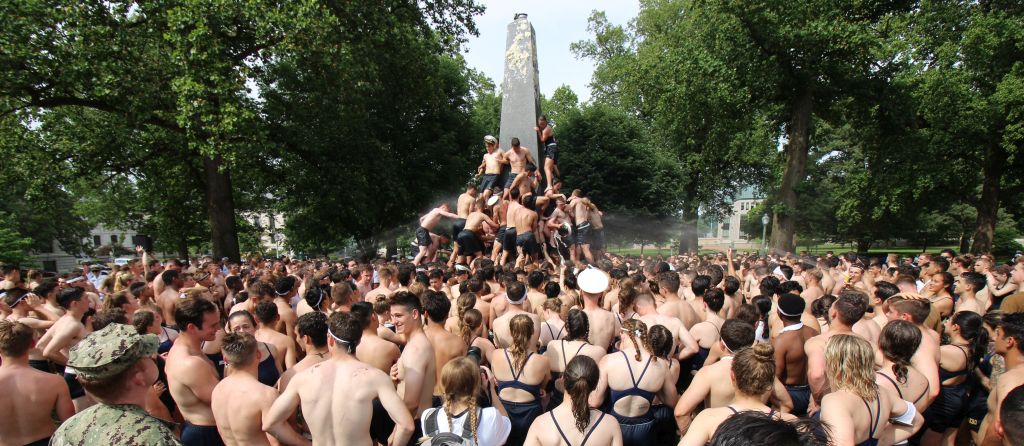Authors:
Historic Era: Era 5: Civil War and Reconstruction (1850-1877)
Historic Theme:
Subject:
June 2021 | Volume 66, Issue 4


Authors:
Historic Era: Era 5: Civil War and Reconstruction (1850-1877)
Historic Theme:
Subject:
June 2021 | Volume 66, Issue 4
Editor's Note: Gary Kinder is author of the New York Times bestseller Ship of Gold in the Deep Blue Sea: The History and Discovery of the World’s Richest Shipwreck. He wrote the introduction for a book recently published by the Naval Institute Press, The Herndon Climb: A History of the United States Naval Academy's Greatest Tradition by Rear Adm. James McNeal, SC, USN (Ret.) and Scott Tomasheski, from which this essay was adapted.

It hardly seems a fair fight: twelve hundred buff plebes against one skinny obelisk. And the goal is simple: Lift a plebe’s cap — a “Dixie Cup” — off the pointy top and crown the obelisk with a peaked officer’s “cover.” So why does it take an hour or two, and sometimes four? And an even bigger question: Why at all?
It is May and it is hot. There is little shade, but squeezed into whatever shadows they can find, in a typical year thousands of spectators unpack picnics. Many have watched the Herndon Climb every spring for decades. A few have even participated. Next to graduation, “Herndon” is the most significant experience in Academy life.
To begin the event, a small brass cannon fires a shotgun shell, and while the plebes race toward the monument, let’s look at the bronze plaque at its base, which the plebes have never seen. Until the Herndon Climb, they have not been allowed to approach the grass or walk on the paths that surround the monument. And the plaque is too small to read from even a few feet away. Had they been allowed closer, the plebes would have seen the name “HERNDON” in raised letters on the back side, and they could have read the one sentence cast on the plaque in 1860: “Forgetful of self, in his death he added a new glory to the annals of the sea.”
That is not the full sentence, mind you, but that’s all that was cast on the plaque. It will do for now.
A more immediate concern: Do the plebes running toward the monument know that Cdr. William Lewis Herndon is the only officer in the United States Navy ever to be honored with a monument in time of peace? And do they realize the irony